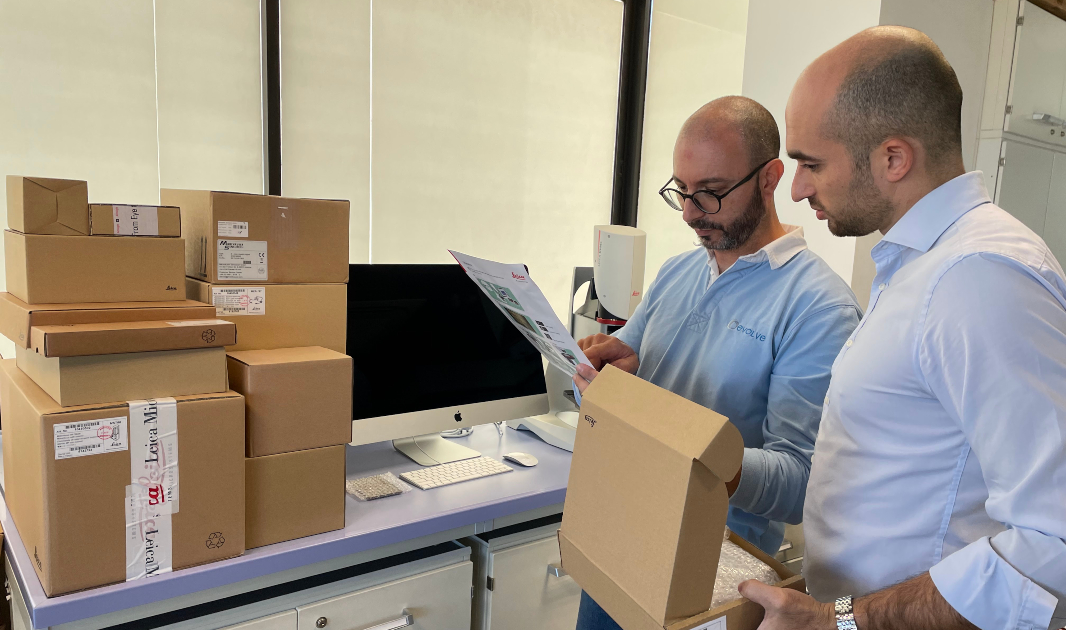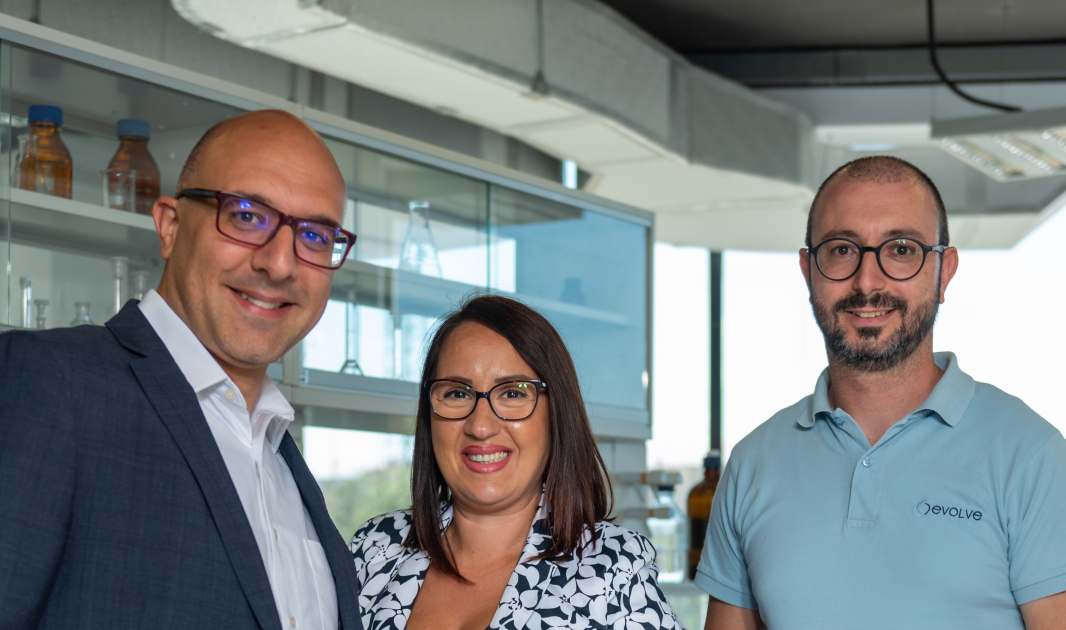Evolve has built a great reputation over the past 20 years, offering services such as designing, equipping, and maintaining scientific workspaces, as well as training industry professionals.
The Maltese company was the first in the world to design and build an EU-standard laboratory in Ghana in West Africa.
Other significant projects in recent years include the design and build of the first medical cannabis processing facility in Malta, the design, build, equipping and maintaining of the largest independent GMP testing lab in Europe and the introduction of molecular biology diagnostic testing methods in the healthcare industry.
At Evolve, we’ve worked on dozens of major lab projects in recent years with a huge number of satisfied customers, including:
- Brewing giant Farsons
- Dubai Police forensic science laboratories
- University of Malta
- Semiconductor firm ST Microelectronics
- Pharma companies Aurobindo, Actavis and Pharmacare
- European Commission science laboratories in Brussels
- Malta College of Arts, Science and Technology
- Montekristo Wine Estates
- Environment services agency Wasteserv
- Malta’s state-run public health laboratory in Valletta
Why flexibility matters in laboratories today?
Science is evolving quickly, which means labs need frequent updates to keep up with new technology.
In the past, labs were designed with fixed layouts and rows of fixed benches. Fast forward to today, and modular lab design is the most common approach.
How can you make your lab design more flexible?
1. Incorporate flexible layouts and collaborative workspaces… to improve the research culture and environment.
2. Incorporate elements such as movable tables, hanging electrical connections, and plug-and-play quick connects…to create flexibility for the changing demands of the lab and its occupants.
3. Consider sustainability by choosing flexible furniture to allow for future expansion and relocation without having to replace furniture.
The best laboratory design will keep your team safe while also maximizing efficiency and anticipating a wide variety of scientific procedures and processes. Even if you’re designing a lab for a singular purpose, such as cannabis production, you’ll want to consider equipment features that could take your business to the next level.
At Evolve, we offer state-of-the-art laboratory equipment. No matter what type of lab you’re designing, we’re here to help.

Six factors to consider
1. Space for Work and Equipment
The first thing you want to consider when designing a laboratory is space. Are you building a new facility from the ground up? Are you renovating an existing space? Do you have lots of room to work with, or do you need to get creative with your space’s limitations?
When designing a lab, it’s important to account for your team as well as your equipment. Make sure people have enough room to work safely. Create a laboratory floor plan with clear traffic flows toward emergency exits.
If you have mobile equipment, make sure your paths are large enough to accommodate it. Leave space in other areas of your lab so your mobile equipment has multiple places to reside without blocking walkways or doorways.
Remember to account for storage needs as well as workstations. When equipment is not in use, where will you safely store it? Don’t take shortcuts by storing equipment in places where it shouldn’t be, such as inside a floor mounted fume hood.
2. Proper Ventilation Systems
Proper ventilation is important in any science lab, but it’s particularly important if your work will produce harmful or toxic fumes. A fume hood can protect your team from breathing in dangerous gases.
Ducted fume hoods attach to standard HVAC systems and exhaust harmful fumes outside of the building. This ensures that no dangerous fumes escape into the laboratory.
Ductless fume hoods, also known as portable fume hoods, use specific filters to remove toxic fumes from the air. The filtered air is then released back into the lab.
Make sure to incorporate fume hoods into your lab design if you plan on doing work that produces harmful fumes. You’ll want to decide which specific fume hoods are necessary for your work. If you anticipate using your fume hoods for multiple purposes, consider choosing a ducted fume hood so you don’t have to worry about using the right filters for a ductless model.
3. Proper Plumbing, Gas, and Electrical Fixtures
Every lab needs lab benches, also known as workstations or utility tables. These basic models can be easily customized with many useful features, including plumbing fixtures, gas lines, electrical outlets, and burners.
When designing your lab, you’ll want to determine where the electrical outlets, gas lines, and plumbing fixtures will be, and include laboratory casework to make use of those features. Our team at Evolve has worked with many companies to create custom workstations that incorporate these fixtures.
4. Safety and Accessibility
Safety and accessibility features can and should be intentionally incorporated into your laboratory design, not added on later as an afterthought.
Accessibility is an important part of any science lab. Walkways should be wide enough for wheelchairs, and fume hoods should be safe to use for people of all heights. Include accessible signage and safety messaging. Make sure that any alarm systems are not just sight-based or sound-based, but both.
5. Modular Lab Design
Invest in good quality modular furniture that can be easily rearranged to accommodate different workflows and research activities.
Mobile workstations and movable storage units can help optimise space and promote flexibility in your lab.
6. User-Centred Design
Create user-centred spaces within your lab that cater to the diverse needs and preferences of your team members. Incorporate flexible work areas, comfortable seating options, and collaborative zones to promote creativity, engagement and productivity in a flexible environment.
By incorporating these six top tips for lab flexibility into your design strategy, you can create a dynamic and adaptable workspace that can easily pivot to meet the evolving demands of research and development. Stay ahead of the innovation curve by embracing flexibility in your lab design and empowering your team to thrive in a versatile and inspiring work environment. If you would like to discuss updating your laboratory design contact Evolve to discuss your requirements.
This is who we are
Our programmes and partnerships, innovations and investments, and the positive impact we’re having in our communities
Your trusted partner for science success
At Evolve, we have specific sector knowledge and tailor scientific solutions to your requirements. Our expertise includes:
- Facility design, laboratory supplies and lab furniture layout
- Expertise to help you make quick and informed decisions for all your clinical, scientific or analytical needs
- We can provide you with a comprehensive maintenance and support service
- We offer training in a number of subjects of interest to the scientific community
Our proactive, consultative approach is underpinned by the expertise of our team of dedicated professionals, ensuring that you’ll get personal support from one of our experts.
If you need to speak with someone from Evolve, please visit our Support Centre page.


